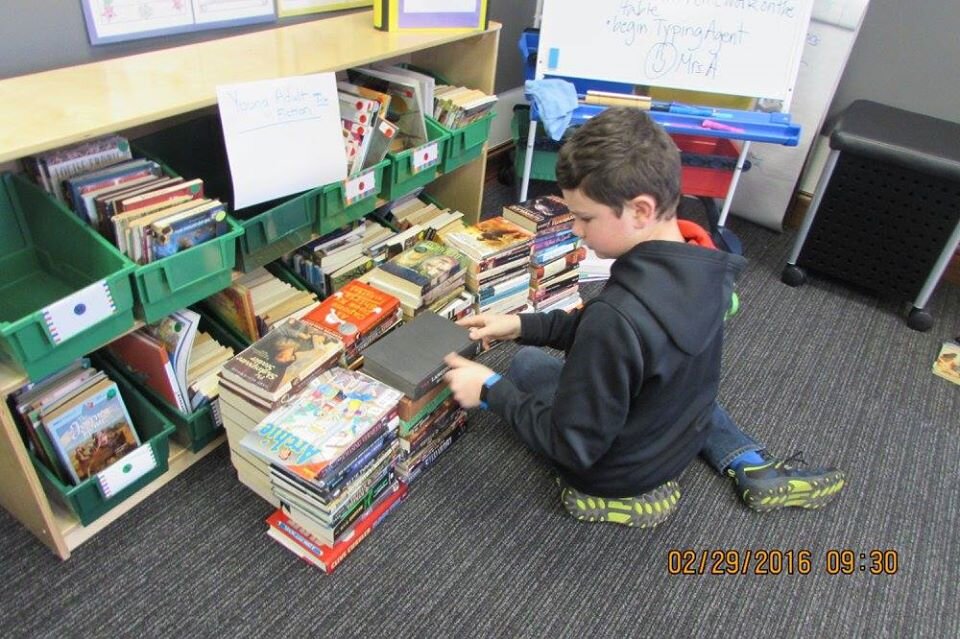Our most-asked question is, “How do you build a library?” This is how:
1.
Collect used and new books
In most of our libraries, 80% of the books are in English while the other 20% are in the local language. To collect the English books, our student volunteers in the United States host book drives in their lower, middle, and upper schools. We mostly purchase books in other languages abroad.
Fourth graders at Alexandria Country Day School in Virginia collecting books for HER.
2.
fundraise
While the cost of each library varies depending on its size and the materials needed, the average cost of one library is $1,200. To earn this money, we collect online donations, apply to grants, and host fundraisers with the help of our student volunteers.
Zoha and Hannah at a HER fundraising event at Barnes & Noble in Arlington, Virginia.
3.
spread awareness
While we are collecting the necessary books and funds for our projects, our HER students’ clubs (located in schools from Washington, D.C., to Casablanca, Morocco) host informative events that spread awareness about girls’ education in developing countries.
Members of the HER Club at Sidwell Friends School in Washington, D.C.
4.
transport the books
With the generous support of the Pakistani Embassy, we transport the books for free from Washington, D.C., to Lahore and Islamabad, Pakistan. From there, our partner organizations in Pakistan transport the books to the location of our next library.
To transport the books to Morocco, we filled our suitcases and extra checked bags with them!
Zoha with boxes of books awaiting shipment to the first HER library in Hair, Pakistan, in 2016.
5.
Constructing the library
After identifying which room in the school to transform into the library, we hire a local carpenter to construct custom-made bookshelves, desks, and chairs. We also make sure that the library room is clean and freshly painted.
Bookshelves being made by our carpenter in Lahore, Pakistan.
6.
cataloging and training
After the library is fully furnished and the books arrive, we usually travel to the site and work with teachers to unpack and organize their new books. We then train the school’s teachers on proper library maintenance and develop a comprehensive catalog of all of the books.
Hannah unpacking and organizing books with women and girls in Amezray, Morocco.
7.
open and celebrate!
After all this is done, we get to open the library and celebrate our achievement with the school’s teachers and students, our hard-working team abroad, friends and family, and sometimes even local politicians.
Opening a HER library in Lahore, Pakistan!







